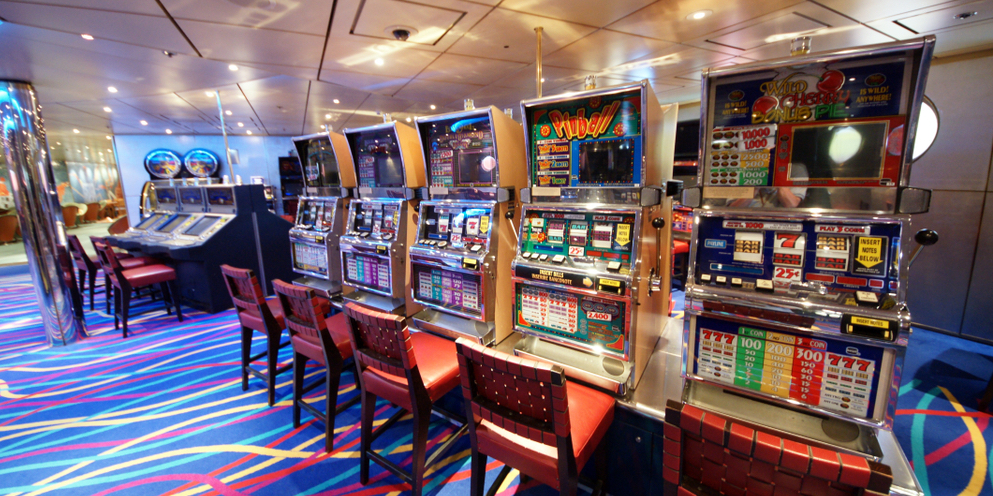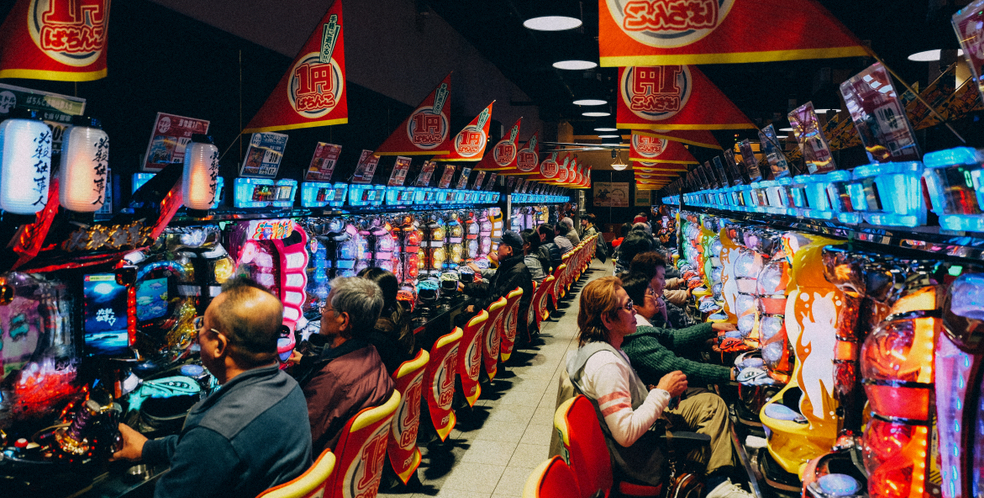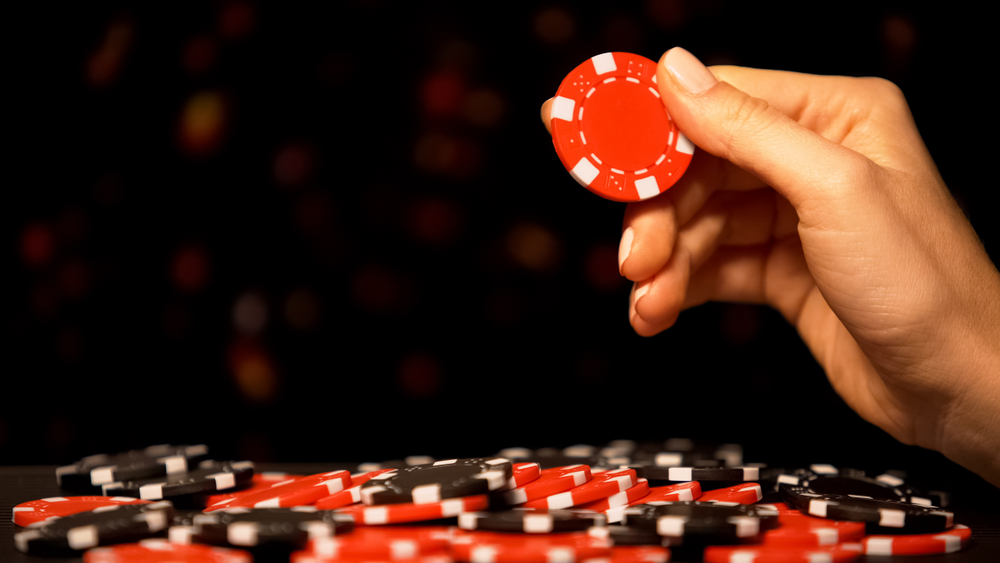
Gambling in Japan is somewhat of a delicate subject and although most forms of gambling are forbidden by the Criminal Code (chapter 23), there are several exceptions to the rule with the most recent being casinos.
Before the recent amendment to the law, betting on horse racing and certain motorsports (bicycle racing, powerboat racing, and asphalt speedway motorbike racing) was and still is completely legal in the country. They are, however, only allowed by special laws that are regulated by local governments and governmental corporations.
With tickets available from countless circuits and ticket booths throughout the country and in many cities (Tokyo, Yokohama, Osaka, and Nagoya) it’s a wonder why alternative forms of gambling aren’t acceptable. But here’s where it gets particularly strange, gambling may be illegal, but Japan also permits the lottery, so much so that you can purchase tickets at some ATMs.
Tickets are usually sold between 100 to 500 yen ($1 to $5) with prizes reaching up to 100 million yen ($1 million). The prize pool for any given lottery is less than 50% of the overall sales with the rest heading to local charities and government organizations so by allowing for the lottery, the country creates funding for positive areas.
But when we look at the legalization of casinos in Japan, the method behind the madness isn’t too dissimilar from what we’ve already seen from the lottery. Maybe this is the next major step up for the development in Japan…
The 2018 legalization of casinos in Japan
As of 20 July 2018, the Japanese Parliament announced that for the first time, casino gambling would be decriminalized, paving the way for new gambling-based businesses and casino revenues by the mid-2020s.
A building of ‘integrated resorts’ was announced to maximize the new laws with the capitalization of casinos, hotels, shopping centers and conference rooms all under the same roof. Think of it as a small slice of Las Vegas making its way over to the Japanese capital.
The news comes shortly after Shinzo Abe, the Japanese Prime Minister voiced his support in legalizing gambling as a section of a strategy to both improve tourism and stimulate economies outside of Tokyo.
The shift in law doesn’t come as a particularly large surprise, especially when you consider the success in other areas of Asia when it comes to casinos and resorts. With Singapore, Hong Kong and Macau (home to 8 of the 10 most profitable casinos) all-seeing huge boosts to the economy, it was only a matter of time before Japan joined in on the action.
Possible future resort sites are rumored with Osaka, Nagasaki, Wakayama and Hokkaido prefecture, but the obvious choice in Tokyo has been suggested, although is not yet formally proposed as a viable venture.
Officials state the very first Japanese casino is likely to open in the mid-2020s, but we’re expecting nothing but accelerated progress. Hardly a surprise with the backing of plenty of U.S. gaming companies including MGM Resorts International and Las Vegas Sands Corp. pledging as much as $10 billion per resort.
With so much investment ready to make movements around the country, we’re expecting the most expensive casinos in the world to be arriving in absolutely no time at all.
What do the locals say?

With so much buzz and coverage around the official’s decisions, the locals can often be overlooked and that appears to be the case with the casino legalization.
Japanese opinion polls show that Tokyo’s newest revenue stream isn’t exactly what you’d call popular with those living in and around the area. With fears of increased crime, increases in addiction and damage to the economy, polls showed nearly two-thirds of those questioned opposed their legalization.
However, the new law does come with some safeguards, seemingly looking towards Monaco and Casino de Monte Carlo for inspiration in keeping the locals at a minimum. With a maximum number of times that a Japanese citizen can visit a casino alongside a $53 entrance fee to reduce the potential for addiction, not as strict as the South of France, but we’re sure it’ll get the job done.
It might not be to everyone’s taste, but with the law passed and serious investment hot on its tail, there’s not a lot that can be done to prevent.
Illegal gambling in Japan
Although one of the safest places in the world, Japan is no stranger to its fair share of crime and with the Yakuza running plenty of questionable businesses throughout the city – it’s no surprise that illegal gambling isn’t exactly rare.
In addition to the traditional casino games that you’d expect in venues around the globe, the Yakuza also promote Mahjong to be played for cash. It’s for this reason that many mahjong parlors have strong ties with the Yakuza in an effort to collect the debt from defaulting players.
But it’s not just the gangs that promote sly betting, illegal gambling opportunities are actually offered by mobile gaming sites. Japanese gamblers can engage in rock-paper-scissor tournaments to win cash prizes. Players that won 3 times in a row could benefit from a 1000 yen prize from a 315 yen buy-in or 10,000 yen for a win-streak of five
By legalizing and allowing control of the gambling industry within the country, it’s expected that the number of direct crimes committed will decrease e.g. illegal casinos, yet there are still worries about indirect increases.
Where to gamble legally in Japan

Although we’re still waiting for any form of legal casino to open around the country, this doesn’t mean that legal gambling can’t be enjoyed with an (admittedly limited) choice of different games to wager in.
Horse Racing
Wagering on horse racing is probably the best you’re going to get for the moment if you’re wanting a flutter while in Japan, but with such popularity surrounding the sport, you’ll find it a breath of fresh air.
There’s a total of 24 government-run, non-JRA tracks throughout the country, but it’s the quality of racing that doesn’t quite cut the mustard for most serious gamblers. Most horses don’t look to be in the best of shape and it leads to some dire viewing at times. But with so many variations and the unpredictability that comes with the events, it can become more like playing the lottery than hedging a sensible bet.
That being said, if you’re looking to visit the government-run races, they’re often found running in the evening on weekdays. It’s worth the experience, even if you’re only heading there once.
If you’re really wanting to take racing to the next level, JRA racing is your only hope. With three tracks in the Tokyo area, two in the Kansai area, two in Hokkaido, two in northern Honshu and another in Kyushu, you’re spoiled for choice across the island. However, if you’re struggling to get to the track, it’s not a problem to hop online and get a JRA account and bet online, streaming the races as you go.
When it comes to the bets there’s plenty of exotic options including trifectas, perfectas as well as the ‘wide’ (a fun play of the quinella). Winnings will be paid when selected horses rank in first and second, first and third or second or third – a great option if you’ve got a peculiar hunch. Don’t worry if you’re struggling with the Japanese characters, you’ll be able to find an English version of the racing site from any search engine.
If you get the chance to visit one of the big races in the calendar year, you’ll be in for a treat with tracks routinely seeing over 100,000 visitors for the racing occasions. It definitely makes for an experience, that’s for sure.
Pachinko
If you’re not familiar with the game of pachinko, it’s exactly what you didn’t know your life was missing…
The game is essentially the Japanese equivalent of pinball that fills the void that a lack of slot machines leave a country, but it’s no hobbyist game. The pachinko market generates more gambling revenue than Las Vegas, Macau and Singapore combined and in 1994 was valued at approximately $300 billion. It’s no wonder there’s a gold-rush for casinos, not with numbers like that, and in 1994 of all times…
Pachinko parlors are everywhere in Japan and although they look and operate in a similar fashion to casinos, gambling for cash is of course illegal. Instead, the pachinko balls collected from the machine following a win can be exchanged for prizes or tokens, but not money in the parlors. Tokens can be exchanged for money, but this is at a separate location from the parlor, thus eliminating the chance for illegal activity.
If you’re around the areas that the game is played, it’s definitely worth a visit. The activity is entirely mesmerizing that promises routine night-time entertainment for locals, and if you ask nicely, tourists too. It might not be particularly glamorous, but it’s a part of Japan we wouldn’t change for the world.
The lottery (takarakuji)
The lottery is one of the most popular forms of legal gambling that you’ll be able to find throughout the entirety of Japan.
You can pick up a ticket directly at numerous sanctioned lottery booths, often found near train stations and in front of department stores, and will likely set you back between 100 and 500 yen ($1 and $5). There’s the chance to hit the jackpot of between 100 million and 1 billion yen ($1 million and $10 million) with each play, but only half of the revenue goes towards the prize fund, the rest you’ll find invested into local governments and charities.
It’s not just the typical national game that you can get involved with, there’s plenty of other typical games that you play too. From scratch-offs to daily pick threes and fours, there are all kinds of different ways to play.
Get incredibly lucky and match your numbers and you’re in for another few great benefits. Not only is there absolutely no obligation to come forward to announce that you’ve got the winning ticket, but what you win is what you keep. All winnings are entirely tax-free so there are no nasty surprises when you come to claim.
Bicycle racing (keirin)
Believe it or not, bicycle racing has been leaps and bounds ahead of horse racing for some time in Japan with a devoted fanbase and the ability to gamble on the outcome of races.
The sport was homegrown shortly after WWII and involves several cyclists completing laps as paced by a motorcycle. Towards the finish, the motorcyclist pulls away and athletes race in an attempt to be crowned victorious as they cross the line.
Although created as a form of gambling, the event made its way into the 2000 Olympics, confirming the capabilities of the sportspeople contending.
Boat racing (kyotei)
Boat racing has been a popular government-sponsored gambling event since 1952 following its introduction from the US.
As of current, there are over 20 venues throughout Japan with drivers completing six laps around a 600-meter course to the finish line. Both male and female riders take part in the race and to avoid any mechanical advantage, riders are allocated a boat at random on race day.
Bets can include predicting the winner, wagering on the top 2 out of 3 and/or predicting the specific combination of podium finishers. It’s definitely an interesting choice, but then again, what isn’t when we’re looking into the culture of Japan?
J-League Soccer
Last, but not least, comes the ability to gamble on the Japanese professional soccer league – J-league.
The system works in a similar fashion to the lottery with ‘Toto’ booths scattered around the country and although they effectively work the same, they’re much more difficult to find. You’ll usually find them located in used car lots and electronic stores, among other weird places, but once you’re in you can take advantage and place your wager.
You don’t need to know a huge amount about the sport to make your picks, just randomly make your picks and hope for the best.






